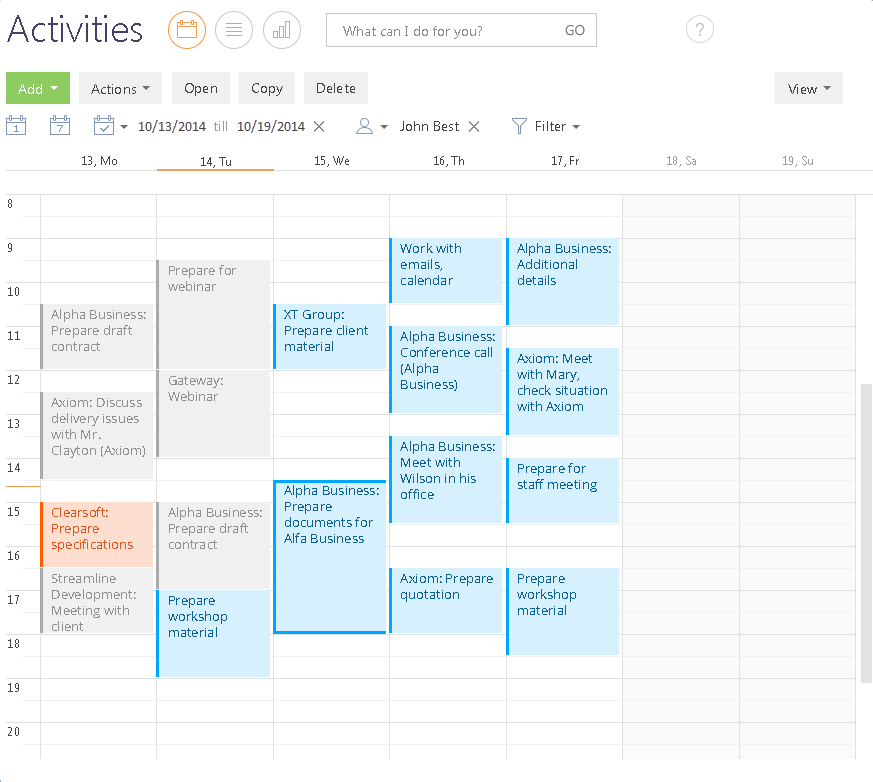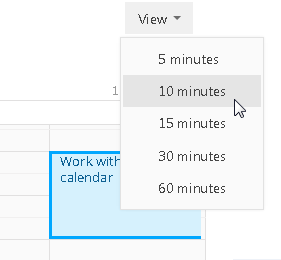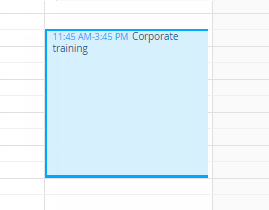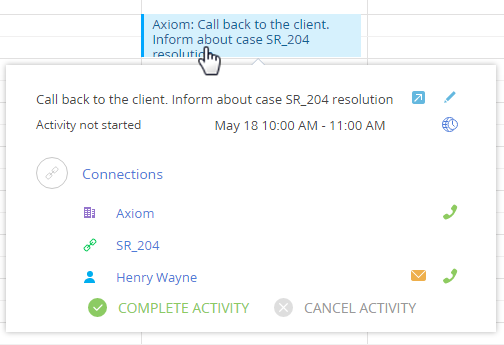The Calendar view of the Activities section (Fig. 1) displays activities as an electronic day planner.

You can add, copy, delete, as well as an open activity for viewing or editing using the toolbar buttons. When you copy an activity, the list of its participants will be copied too. Activities in the calendar can be filtered in the same manner as records in the list.
Analyze the calendar
The calendar area
The calendar area is divided into days. The date and day of the week are displayed in the heading of each day column. The title of the current day is highlighted.
In the calendar area activities are displayed in the form of rectangular blocks whose height corresponds to the duration of activities. The current time is highlighted with an orange line. To scroll the calendar vertically, use the scrollbar at the right of the calendar or the Up and Down keys on your keyboard.
Long activities
An activity is considered as “Long“ if it lasts more than 24 hours (for example, a business trip or a vacation). Such activities are displayed above the calendar (Fig. 2).

If the start or due date can not be specified within the time period that the calendar displays, it will display either the start date or the due date of the activity.
Activity colors in calendar view
Activities in the calendar view are highlighted with different colors depending on their status and due date.
-
Activities are highlighted red when their due time has already passed while those activities were not in the final state yet (overdue activities).
-
Blue is used to highlight activities that are not in the final state (not started or in progress) and have not passed their due time yet.
-
Grey is used to highlighting activities that are in the final state (completed or canceled).
Set up calendar scale
A calendar cell can display time intervals from 5 to 60 minutes. You can modify the calendar scale by selecting the corresponding command from the View menu (Fig. 3).

The calendar scale influences the accuracy of how activities are displayed (a calendar cell is always fully occupied). For example, if the cell is set to the interval of “60 minutes,“ the activity with 1 hour 20 minutes duration occupies 2 cells. In this case, the accurate duration of the activity is displayed (Fig. 4).

If the start and due time are not visible due to the current calendar scale, you can see them on the activity mini page that appears when the mouse pointer hovers over the activity title. Also, the activity mini page contains primary fields of the activity record (Fig. 5).
